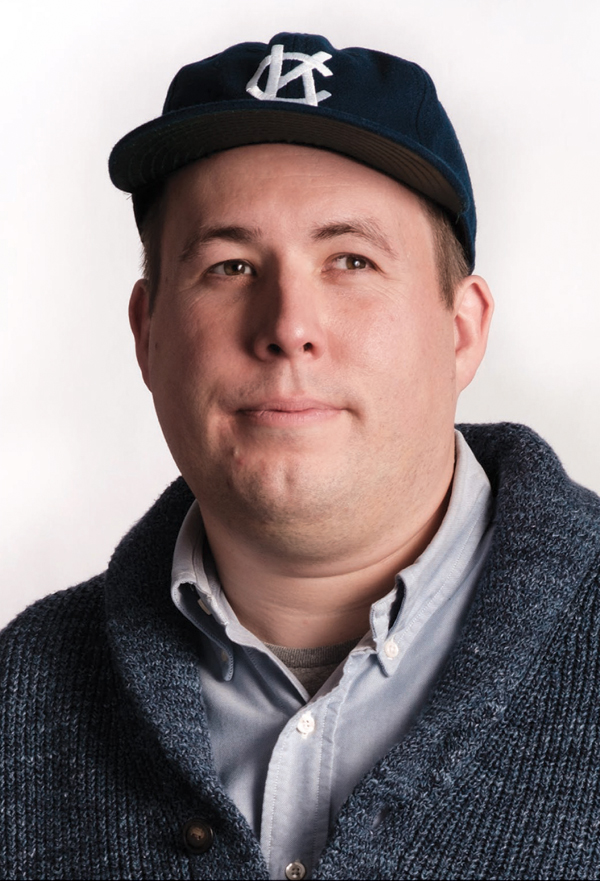Craig Arthur | Movers & Shakers 2019 – Innovators
“If it doesn’t work out, just learn from it,” says Craig Arthur of his approach to Digging in the Crates. A community-driven program hosted at Virginia Tech’s (VTU) Newman Library, it features hip-hop study hours, a monthly seminar series, open studio hours, media literacy workshops, and partner-created events. Combining his skills as a librarian and DJ, Arthur’s programs “draw students and community members who may never have attended library events and open up doorways to conversation and art that library users may never have encountered,” says Lisa Becksford, a VTU colleague.

CURRENT POSITION
Head, Foundational Instruction & Engagement, Virginia Tech University, Blacksburg
DEGREE
MLIS, University of North Carolina, Greensboro, 2012
FOLLOW
@nicestlibrarian; @cooldjcsharp, @VTDITC (Instagram); roanoke.com/news/education/higher_
education/virginia_tech/students-digging-monthly-hip-hop-event/article_d3face79-2e2a-5e86-aa6f-24f390c1f620.html
Photo by Richard Randolph
Mix Master
“If it doesn’t work out, just learn from it,” says Craig Arthur of his approach to Digging in the Crates. A community-driven program hosted at Virginia Tech’s (VTU) Newman Library, it features hip-hop study hours, a monthly seminar series, open studio hours, media literacy workshops, and partner-created events. Combining his skills as a librarian and DJ, Arthur’s programs “draw students and community members who may never have attended library events and open up doorways to conversation and art that library users may never have encountered,” says Lisa Becksford, a VTU colleague.
One example is his workshop on DJing and fair use, which explores a history of hip-hop DJing in connection to fair use by showcasing various DJs’ artistic journeys and illustrating how sampling existing work is imperative to the creative process. By reframing traditional scholarly topics as they apply to popular culture, Digging in the Crates connects passion to professional opportunities and artists, fans, and scholars to one another so they can come together to create, share, and learn.
Community connections are key. Representatives from 11 campus units and four student organizations make up the program’s leadership board. Some students serve as creative directors, developing lesson plans, promoting events, and sharing expertise. Arthur has fostered conversations around gender, social justice, and mental health and given a voice to diverse students—some of whom, Becksford says, “may not feel at home in the academy and whose interests are often invisible.”
RELATED
ALREADY A SUBSCRIBER? LOG IN
We are currently offering this content for free. Sign up now to activate your personal profile, where you can save articles for future viewing









Add Comment :-
Comment Policy:
Comment should not be empty !!!
JP Porcaro
Woah Craig!!! You been grinding for years, cool to see you on here!!!!Posted : Mar 08, 2019 06:08